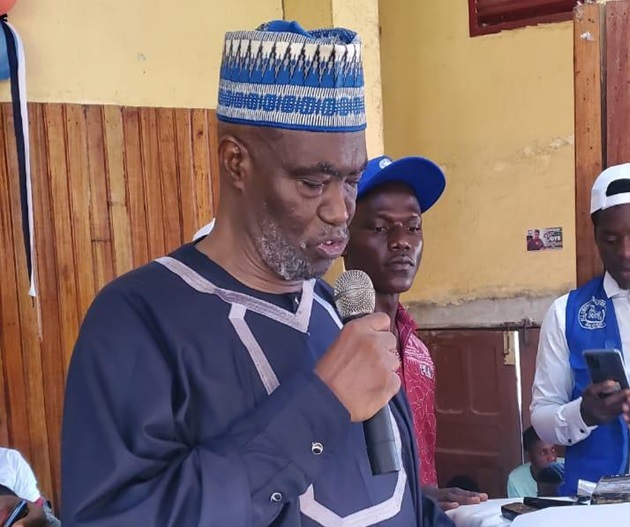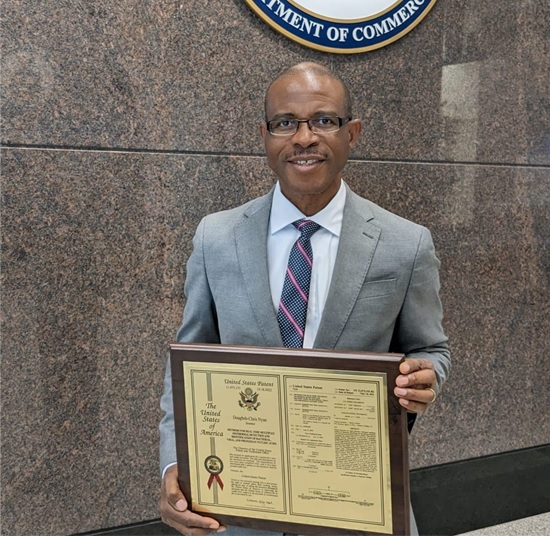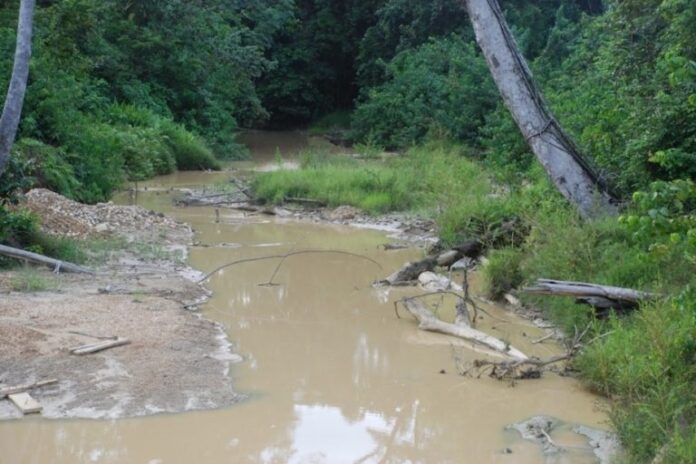LIBERIA – The standard bearer of the All Liberia Coalition Party (ALCOP), Lusinee F. Kamara, Sr., has warned commissioners of the National Elections Commission (NEC) to ensure that voter registrars are not victims of the viruses of segregation, tribalism, and Islamophobia; therefore, they should allow everyone to participate.
His remarks, which were contained in a statement issued recently, said Liberians are one people, despite different tribes and religions, and they should work together to make Liberia better.
“It is difficult for all of us to respect the fact that all citizens have the right to register and vote; the Fula community is no exception; illiterate Muslims are no exception; and Muslim women wearing hijab are no exception,” he said.
Kamara, who is also the former Finance Minister and hailed from the Mandigo tribe, called on others to respect them for the important role they continue to play as an inseparable part of Liberia.
“We see a clear double standard in this and call on NEC to stop subjecting Muslims to these indecent treatments, harassments, and denials during voter registration exercises.” He continued, “As well-meaning Liberians, we should beware of the pains, sorrows, dangers, and setbacks Liberia has suffered from the injustice of discrimination and social inequality.”
Kamara noted that if women wearing different styles of dress are not stopped, Muslim women wearing hijabs are equally entitled to respect and dignity.
“We like to take this time to encourage all our people to use this registration period as an opportunity to prepare for the 2023 Presidential Elections.”
“As we encourage all Liberians to take part in these democratic processes, we, therefore, call on the National Elections Commission (NEC) not to field voter registrars who will violate the rights of our citizens during voter registration exercises,” he said.
But over the past twelve months, the NEC has seen a string of procurement disputes, the most recent of which involved the selection of and contract award to a qualified company to deliver the NEC with biometric hardware, software, and technical support.
After nearly five months of the rigmarole, the Commission disclosed on December 22 that Laxton, a Dutch company, has officially been awarded the contract valued at nearly US$12 million and that the process will be done in two phases.
Phase one of the biometric voter registration exercises will last for three weeks, “beginning March 20 and ending April 9, 2023.” Phase two of the voter registration exercise will begin on April 10 and last for three weeks.
This means phase two, or the last phase of the biometric voter registration, will be concluded on May 11, 2023.
Seven counties, including Montserrado, Margibi, Grand Bassa, Bomi, Grand Cape Mount, and Gbarpolu, will be served in phase one, while Rivercess, Sinoe, and Grand Kru will form part of phase two.
Others to be served in phase two include Maryland, River Gee, Grand Gedeh, Nimba, Bong, and Lofa, which will complete the number of counties for phase two of the biometric voter registration.
However, Kamara said the NEC must instruct the voter registrars to respect the rights and dignity of all citizens alike and to conduct a free and fair voter registration exercise for all citizens, irrespective of their different tribal and religious backgrounds.
He said, “Sadly, indeed, we always hear many complaints of impunity in the flagrant denial of the Fula ethnic group during voter registration exercises by NEC Voter Registrars.”
Kamara further alleged that it is not ethical to confiscate documents from Fula people that were issued to them by legitimate government authorities.
“How can you disrespect the work of our state institutions that gave the documents to the Fula after they satisfy the criteria required by the authorities of the government agency granting such documents?” Kamara asked.
“Let us all remember that our society, Liberia, is multi-cultural and multi-religious.” He urged, “Let us know that the Fula community has contributed and continues to contribute greatly to Liberia’s social and political progress before and today.”







